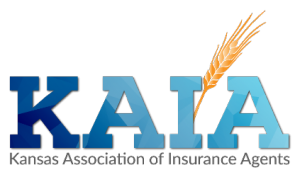Handling Claim Calls Without Creating E&O Exposure
Handling client claims is one of the most sensitive and important responsibilities in an insurance agency. A claim is often a stressful event for policyholders, and how your agency responds can impact both the client experience and your exposure to Errors & Omissions (E&O). Agents who can explain the process clearly, manage expectations, and avoid providing coverage advice add tangible value to their service.
It is common for independent agencies to want to be involved in the claim experience for customers, especially within personal lines business. The claim experience can be emotional for clients, so it does make sense that an agency would want that relationship touchpoint and offer their assistance. The danger is when there is insufficient training to help agency personnel remain helpful and empathetic without confirming or denying coverage in the policy.
The Agent’s Role in the Claims Process
Agents are often the first point of contact for policyholders reporting a loss. Your guidance can make a difference—but there are important boundaries:
- Do not advise clients not to file a claim. Claims decisions and coverage determinations are made by the carrier.
- Use neutral language with qualifiers. Phrases like “I recommend contacting your carrier’s claims department for guidance” help keep communication safe.
- Avoid commenting on payout amounts or potential claim outcomes. Only licensed adjusters or authorized personnel can provide this guidance.
- Set realistic expectations. Explain the process in steps, highlight the time needed for investigation, and clarify that resolution may take longer than expected.
- Document all communications. Record client and carrier conversations in your management system to protect the agency in case of future disputes.
Avoiding E&O Exposure
One of the most common E&O pitfalls is advising clients not to file a claim due to:
- Deductibles
- Prior claims history
- Perceived minor losses
Even well-intentioned guidance can create liability if coverage is later denied or the client disagrees. Keeping communication neutral, directing clients to the carrier, and documenting the interaction protects both the agency and the client relationship.
Why “Don’t File” Advice Is Risky
- Shifts Liability to the Agency: Clients may assume the agent made the decision. If the loss turns out to be larger than expected or coverage is denied, the agency could be held responsible.
- Example: A client was advised not to file a claim because the total loss appeared to be below their deductible. The agent the loss amount solely on information provided over the phone. A professional inspection later revealed the claim exceeded the deductible and would have been covered. Now that the client submitted the claim late, the insurer could deny it, and the agency might be held liable.
- Coverage Complexity: Even small losses can trigger multiple coverages or benefits. Advising a client not to file may prevent them from receiving coverage they are entitled to.
- Example: A minor property loss might also trigger additional living expenses or liability coverage. Advising against filing could prevent the client from receiving these benefits.
- Regulatory Implications: Only adjusters or licensed professionals can make coverage determinations. Agents exceeding this authority risk regulatory issues and E&O claims.
- Example: An agent tells a client a minor auto accident “won’t be covered” without consulting the insurer. This could be considered practicing beyond their authority and trigger regulatory scrutiny.
Best Practices for Claims Handling: A Few Quick and Easy Reminders.
- Never confirm or deny coverage. Leave this to the carrier.
- Report claims promptly. A claim reported to the agency is considered reported to the carrier. Timely reporting is critical.
- Protect client information. Share details only with the carrier unless you have written client permission.
- Document! Document! Document! Keep detailed records of all conversations and follow up in writing when possible.
- Standardize your process. Consider assigning specific staff to handle claim calls, using reminders to follow up on open claims, or helping clients with the claim reporting process.
- Be proactive. Provide clients with an overview of the claims process when they purchase a policy, so expectations are clear.
All agency personnel should feel confident handling claim calls while maintaining strong client relationships. Clients may have unrealistic expectations, so patience, responsiveness, and a consistent process are critical. Understanding the claims process not only guides clients through stressful times but also can help protect the agency from E&O exposure.
Evan Leitch
Swiss Re Approved Auditor
Virtual Agency Solutions/Independent Insurance Agents of Wisconsin
